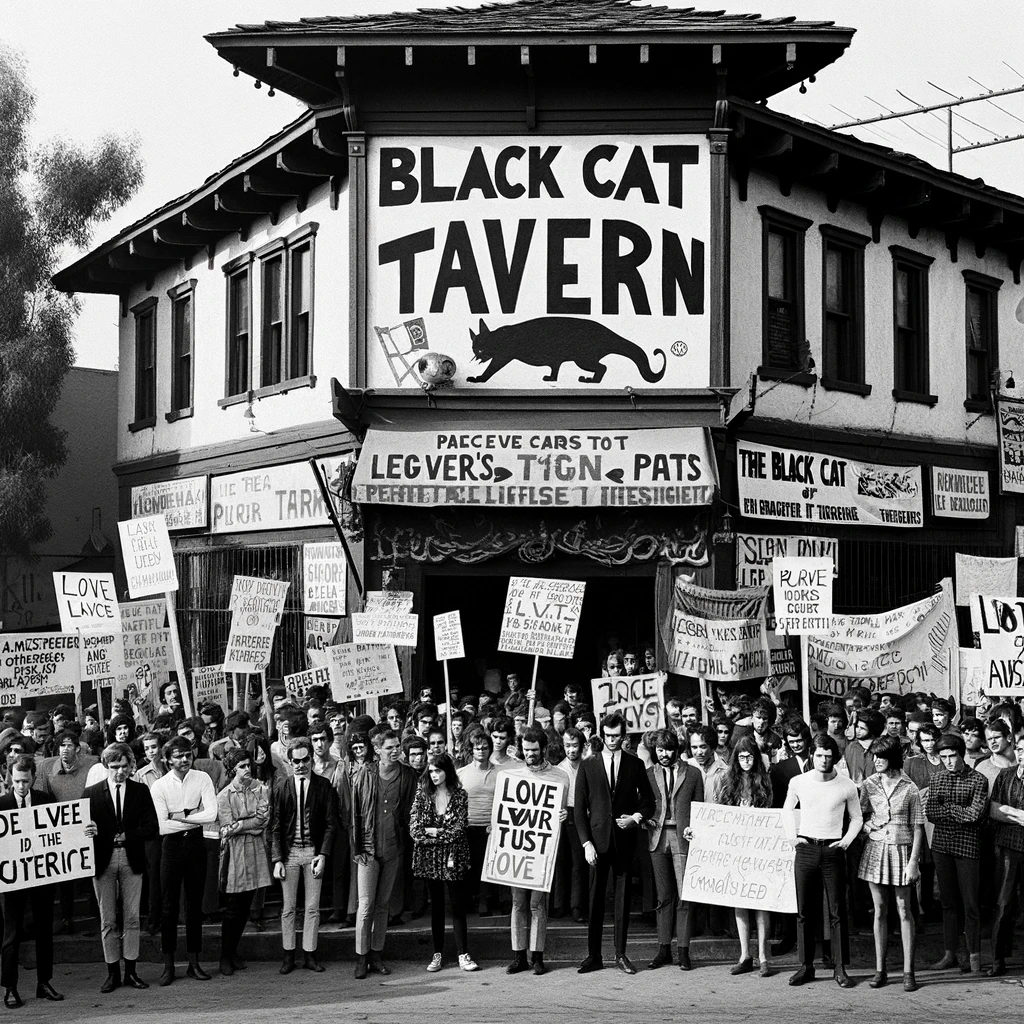In the heart of Silver Lake, Los Angeles, stands a landmark steeped in the history of the LGBTQ civil rights movement. The Black Cat Tavern, now recognized for its pivotal role in advocating for LGBTQ rights, was the site of one of the first documented LGBTQ civil rights demonstrations in the United States. This protest, which occurred on February 11, 1967, marked a significant turning point in the fight for equality and justice for the LGBTQ community.
Background of the Black Cat Tavern
The Black Cat Tavern was a local bar that became a safe haven for the LGBTQ community in the 1960s, a time when homosexuality was still criminalized and social discrimination was rampant. On New Year’s Eve of 1966, the tavern was the target of a police raid, a common occurrence for LGBTQ spaces during this era. Police officers, many in plainclothes, entered the bar and violently assaulted several patrons for engaging in same-sex displays of affection, a gesture of celebration for the new year. The brutality of the raid was a clear demonstration of the systemic oppression faced by the LGBTQ community.
The Protest
In response to the police raid, the LGBTQ community organized a peaceful protest on February 11, 1967. Contrary to the violent confrontations that characterized other civil rights protests of the time, the demonstration at the Black Cat Tavern was marked by its peaceful nature. Over 200 LGBTQ individuals and their allies gathered to protest the police brutality and demand a stop to the harassment and discrimination against their community. This protest was not just a response to the raid but a public statement against the broader issue of police brutality and discrimination faced by LGBTQ individuals.
Significance and Legacy
The protest at the Black Cat Tavern is significant for several reasons. Firstly, it predates the Stonewall Riots of 1969, which are often credited as the beginning of the modern LGBTQ rights movement. The Black Cat protest, therefore, highlights the existence of organized resistance against LGBTQ discrimination before Stonewall. Secondly, the demonstration is a testament to the courage and resilience of the LGBTQ community in the face of systemic oppression. It set a precedent for peaceful protest and civil disobedience as tools for advocating for civil rights and social change within the LGBTQ movement.
In recognition of its historical significance, the site of the Black Cat Tavern has been designated as a Los Angeles Historic-Cultural Monument. This designation serves as a reminder of the struggle for LGBTQ rights and the importance of preserving the memory of those who fought for equality and justice.

The Black Cat Tavern protest of 1967 is more than just a historical event; it is a symbol of the fight for equality, dignity, and recognition for the LGBTQ community. It reminds us of the power of peaceful protest and the importance of standing up against injustice. As we continue to face challenges in the fight for LGBTQ rights, the legacy of the Black Cat Tavern serves as both a beacon of hope and a call to action for future generations.
